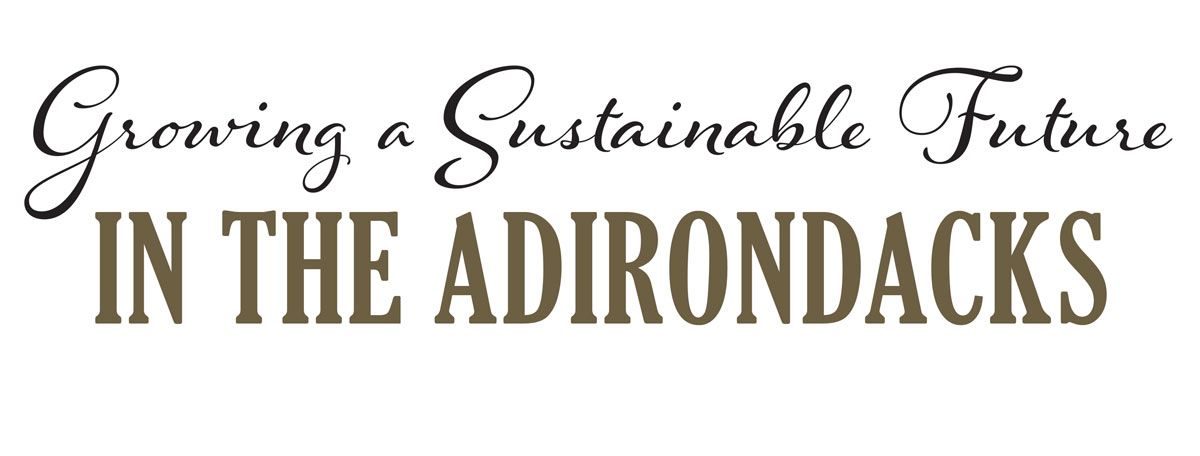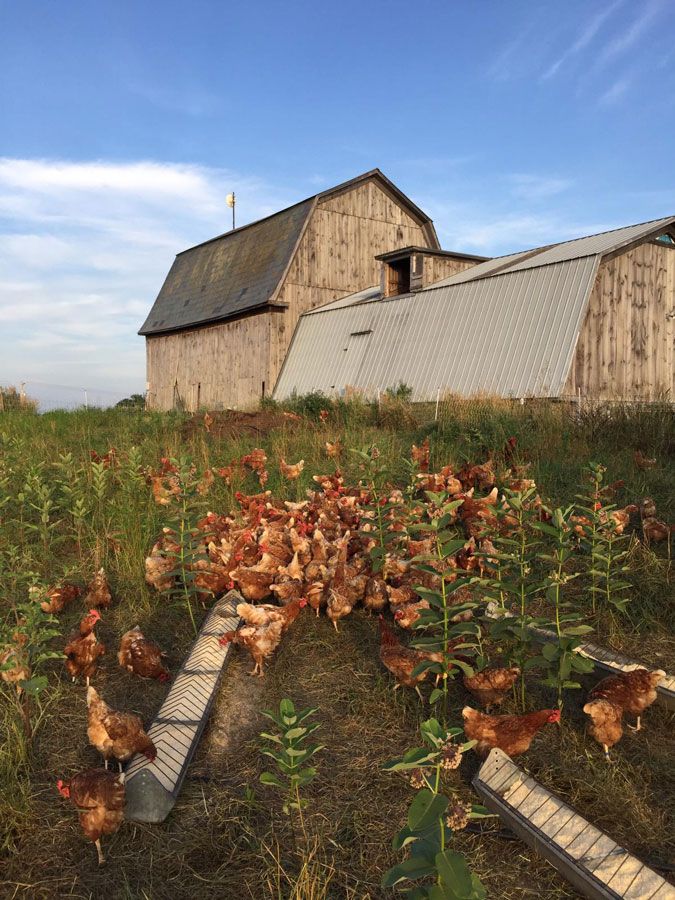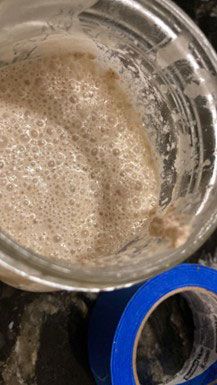
WRITTEN AND PHOTOGRAPHYED BY HIMANEE GUPTA

Mark and Kristin Kimball are farmers who envision a time when most, if not all, the food a community needs for a healthy, delicious, sustainable diet can come from a single piece of land. Since 2003, they have been working to make that dream a reality at Essex Farm.
Kristin chronicles their story in two books: The Dirty Life (2010) and Good Husbandry (2019). I read The Dirty Life in 2021 during my farm’s first growing season at our new site in Schaghticoke. Soon after, I began meeting people who had been to Essex Farm, located by Lake Champlain, minutes from the ferry to Vermont. I was in the area this fall for a few weeks and visited the farm out of curiosity and in hopes of procuring fresh butter.
I arrived on a sunny Saturday and parked by a set of tents. As I looked out at the storage bins under the tents, a man driving a pickup truck with wagon hitch pulled in behind me, blocking my path out. He began chatting with a lanky bald-headed man in overalls and no shoes who was sitting at a picnic table. Mildly irritated, I stepped out and prepared to head for the store. But then the bald-headed man hailed me. He turned out to be Mark.
Mark began to envision his future sustainable farm in the 1990s, well before farm-to-fork had become a movement. He and his then fiancé Kristin poured their life savings into a down payment on a farm and started a community farm-share program or CSA that Kristin recalls was unheard of for a small town seeped in economic depression. For the price of what a family of four might spend on processed grocery store foods in a year, they would offer the equivalent and more straight from the farm. It was an enormous gamble, but a handful of residents signed on.
Nearly two decades later, Essex Farm is thriving. Several young farmers I met at a Keene Valley farmers' market the next day told me they got their start working at that farm.
Mark speaks fast. In about two minutes, he told me where to find butter, how to pay for anything I bought in the store, and how to get in touch with him next week for sourdough starter. He also invited me to pick raspberries and corn.
“Feel free to take all you want,” he said.
I thought of my full refrigerator. But Mark’s energy was infectious. I began picking berries, and on an impulse reached for some corn.
I peeled back the leaves of one ear fresh off the stalk. A cream-colored worm tumbled out. Back when Mark was dreaming of his farm, I would have found such a discovery repulsive. Now, I took this to be a sign of the farm’s pesticide-free practices.
A friendly cat approached me as I was exiting a storage unit with a jar of butter. She wanted to go in, so I let her sniff my jar as I bolted the unit shut. As I walked toward the store, a woman in jeans approached me.
“Are you Kristin?” I asked.
“I am,” she said with a smile.
I asked what I owed for the butter, raspberries, and corn. She told me I could make a donation, but these items were not actually for sale.
In the store, I picked up a copy of Good Husbandry and a jar of jam. I logged my purchases and my donation in a notebook and headed out.
The pickup truck was long gone, as was my irritation. I had spent less than an hour at Essex Farm and had seen only a fraction of its 500-acre operation. In this time, I gained a new sense of what it meant to build community through farming. It was all about being open, trusting, and sharing the fruits of one’s harvest.
That night, I husked the corn. I sliced off the kernels and put them in a saucepan. I added just enough water to cover them and brought them to a boil. After lowering the heat, I let the kernels simmer until soft. I mashed them lightly and strained them into a bowl. I grated cheese and sat down to eat polenta made with fresh corn. It was sweet and crunchy, and made me think of Essex Farm’s goal: All the food one might need straight from the farm. It works in Essex; it can work in Saratoga.
One week later, I went back to pick up sourdough starter and another jar of the farm’s sweet butter. A hard frost had hit the area a couple nights earlier, and the raspberries and corn were gone. I thought of the one fresh ear of corn I still had left and of the value of timing. Abundance allowed for generosity. I was happy to have been able to accept it and perhaps reciprocate in some way into the future.

